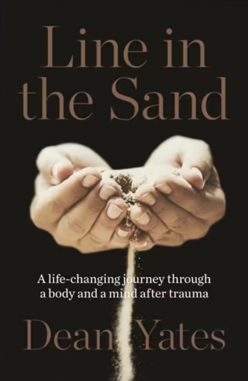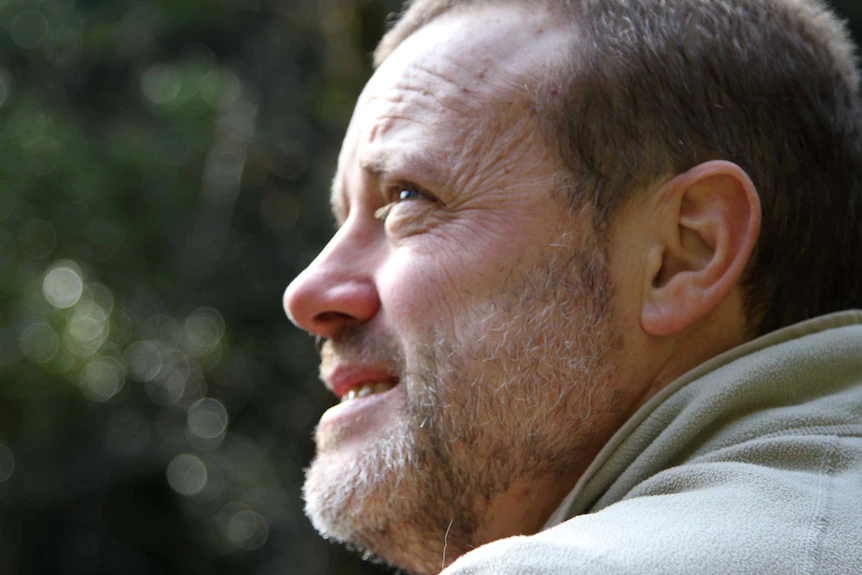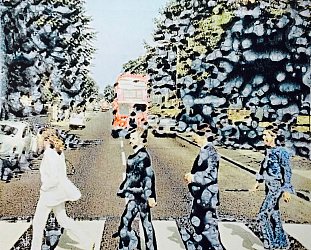Graham Reid | | 3 min read

Dean Yates had seen the worst of this world: at his fingertips are the bodies of women, children and men mutilated by war or environmental tragedy; homes and villages bombed beyond recognition; the industrial might of nations unleashed as murderous military hardware . . .
As a Reuters correspondent he covered an accumulation of terrible events: the aftermath of the Bali bombings, three tours of duty in Iraq, the Boxing Day tsunami in Aceh . . .
The weight of these horrors he pushed aside, telling himself he was a witness to history and his job was to report it.
But the incremental damage was being done and one day – on a surprisingly ordinary day in his abnormal world – his life and soul were torn asunder and he would never be the same again.
Even now he lives with the appalling personal costs of Post Traumatic Stress Disorder which almost cost him his life, wife and family.
It certainly cost him his job.
In July 2007 Yates was the bureau chief in Reuters' Baghdad office at a time when suicide bombers were wreaking havoc across what he calls “the most dangerous country on earth, ancient Baghdad the epicentre of this hellscape”.
Among the nearly 100 Iraqi journalists and support staff are photographer Namir Noor-Eldeen and driver Saeed Chmagh, a 40-year old father of four.
Out on the street on this particular day they can't see the American Apache helicopters overhead, but when Namir and Saeed join some other men on the street the Americans above consider them a threat, carrying AK-47s and the order is given, “Light 'em all up!”
Saeed survives the first onslaught but not the second.
Yates gets the message a short time later and it makes no sense, they were perceived as having “hostile intent” . . . but were unarmed and no one fired on the US forces.
The stresses and pressures of his job, and those of the years previous, push down on him.
He sees the footage and entertains the idea that Namir looks suspicious, hears the voices of the Americans, they accept the Americans' explanation but something is gnawing at Yates.
Two years later Chelsea Manning acquires combat videos from Baghdad, they end up with Julian Assange and the killing of Saeed and Namir make it into the world media as "collateral murder".
Yates, now 47 and back home in Tasmania, crashes: he has already been diagnosed with PTSD and been off work for five months on sick leave – he can't tell Reuters of his condition because he'll lose his job – and he blames himself for the deaths of those he knew.
 He has nightmares constantly, is depressed, sudden noises set him off in a rage, Reuters have abandoned him, his wife Mary – 20 years a journalist herself but now looking after their three children – is on edge the whole time.
He has nightmares constantly, is depressed, sudden noises set him off in a rage, Reuters have abandoned him, his wife Mary – 20 years a journalist herself but now looking after their three children – is on edge the whole time.
Yates spirals down and down, he is suicidal, and ends up at a psychiatric ward in Melbourne. The deaths of Namir and Saeed haunt him.
As a journalist, Yates is able to tell this horrific story of his decline and fall, to get under the skin of his emotions and to record his feelings with astonishing candour.
In the ward he meets other men similarly damaged – policemen, veterans – and suddenly sees himself in them: if a man still traumatised by Vietnam in 1966 is here, what chance is there for him?
They all have one thing in common, when they told their employers they all lost their jobs and were cut off.
Yates finds a purpose: he will write the stories of his PTSD and that of the men he meets. His psychiatrist warns against this, he needs to start healing himself before he undertakes and such project.
How long will that take?
No one can say. But he realises he isn't going to walk out of there cured.
He scrolls back through his life and sees the moral injury done to him by the accumulation of violence he has witnessed but never processed.
In this terrifyingly candid account – I had nightmares, my dreams awash with blood and fear – Yates is unsparing on himself.
He reveals how he would avail himself of prostitutes, sometimes for rough sex. How he insisted on anal sex with his wife and she penetrating him with sex toys.
He wanted to hurt and be hurt.
The marriage relationship is stretched to breaking point but if there are heroes in this emotionally shattering account it is Yates for his courage in telling the story and Mary who stands beside him the whole way.
As an insight into PTSD, the treatment and how it affects people so differently, this is a valuable and compelling book full of the quiet wisdom of the nursing staff and insightful research by those dealing with the victims.
It is also an awful and extraordinary story of a courageous man who suffered what is called moral injury – something which affects the belief system – and his long, crooked path back to some semblance of a life.
“I guarantee there will be setbacks,” he admits in the final paragraphs.
.
LINE IN THE SAND by DEAN YATES, Pan McMillan $40





post a comment